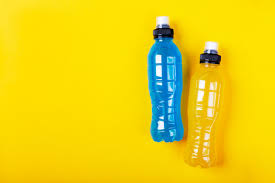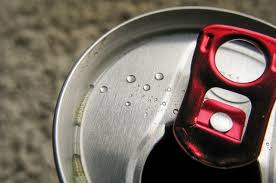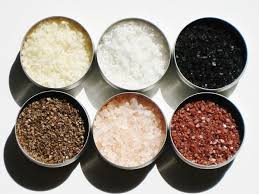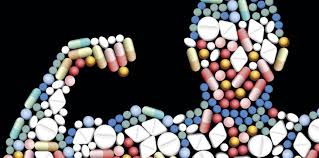Advertising of these drinks, especially with the arrival of summer, is gaining momentum.
There are those who “give you wings”, which can also be a slogan from a dangerous reading, to those who, even if you sent them and already raised you, not even the late Nino Manfredi with his favorite coffee
But are these drinks, which the US Food and Drug Administration classifies as dietary supplements, are they beneficial?
And what is the difference between energy drinks and those common among athletes?

Energy drinks
Let’s start with energy drinks. They are popular with young and very young people because they guarantee full nights at full capacity. So are they really energetic? Indeed, according to manufacturers, can they increase stamina and improve concentration and attention?
Doctors strongly deny this.
The main ingredient in energy drinks is always caffeine. They often also contain guarana plant extract (which is similar to caffeine), the amino acid taurine (do you know how bulls are found in advertisements?), As well as sugars and vitamins.
Sugar is a useful fuel for energy production, but the composition of these drinks means that the real main ingredient is caffeine. The high concentration dose of caffeine suppresses the need for sleep and “keeps you awake,” and this creates the illusion of being in better shape, especially if you are “helping” yourself with alcohol (and hence extra sugar).
Needless to say, the effects of these drinks can be very harmful, especially for young people.
Be careful, because often undeclared doses of caffeine are very high and reach 500 mg in one can. By comparison, 500 mg is the amount of caffeine found in 15 cans of Coca-Cola.
This is unfortunately possible because the amount of caffeine in drinks is regulated, treated as food rather than in nutritional supplements, which as such are subject to fewer health checks and have less stringent regulations.
Caffeine is, in fact, responsible for hypertension problems and can cause serious problems in people with heart problems. Sleep disturbances can be equally serious, which can lead to real and inherent changes in the wakefulness of the sleep cycle with subsequent metabolic and functional imbalances.
If you took these drinks on certain evenings, perhaps to spend the entire night dancing, the subsequent deprivation can also lead to aches and pains such as headaches, gastrointestinal problems, and nervous conditions and irritability. p>
Sugar also causes serious dental problems and raises blood sugar levels, which can contribute to diabetes.
In conclusion, it is much better to leave the “wings” at home and avoid getting into Icarus.

Isotonic & Rehydrating Drinks
Many people use sports drinks to restore water and electrolytes lost during sweating, both after exercising and in summer, after walking or in any case after sweating and, in the case of children and young people, after they have consumed lots of energy while playing.
Electrolytes are minerals such as potassium, calcium, sodium, magnesium, and are used to maintain the balance of body fluids at the right level. You can lose electrolytes when you sweat.
sports drinks contain both sugars and electrolytes and minerals, and sometimes proteins, vitamins. Sometimes even so, caffeine.
They are available in many flavors to appeal to almost all people.
Parents often convince their children to drink these drinks, believing that they help them hydrate and restore mineral salts faster.
In fact, the American Academy of Pediatrics claims that the best way to restore energy for children and adolescents is through eating a balanced diet and not getting enough sleep.
There are no keyboard shortcuts and wonderful “concoctions” like Asterix potion. The best way to rehydrate is to drink water that is better ionized and alkaline, the best way to stay active and never skip The electrolytes and vitamins useful for keeping fit are always provided with a balanced diet that ensures a significant intake of vegetables and vegetables and limits the consumption of meat and animal fats. as well as sugar, taken in any form.
Especially for children and young people, sugar is unhealthy, and in this respect nutritionist David Bianchetti notes that “excessive consumption of sweets can lead to childhood obesity or diabetes.
now educate children about healthy and healthy eating for their well-being. ”



